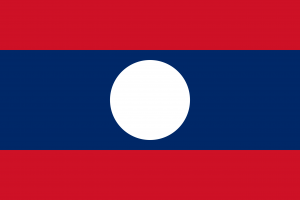Difference between revisions of "Language/Lao/Grammar/Personal-pronouns"
Jump to navigation
Jump to search
m (Quick edit) |
m (Quick edit) |
||
| Line 25: | Line 25: | ||
|} | |} | ||
== | ==Other Lessons== | ||
* [[Language/Lao/Grammar/Conditional-Mood|Conditional Mood]] | * [[Language/Lao/Grammar/Conditional-Mood|Conditional Mood]] | ||
* [[Language/Lao/Grammar/Demonstrative-Pronouns|Demonstrative Pronouns]] | * [[Language/Lao/Grammar/Demonstrative-Pronouns|Demonstrative Pronouns]] | ||
| Line 34: | Line 34: | ||
* [[Language/Lao/Grammar/Future-Tense|Future Tense]] | * [[Language/Lao/Grammar/Future-Tense|Future Tense]] | ||
* [[Language/Lao/Grammar/Questions|Questions]] | * [[Language/Lao/Grammar/Questions|Questions]] | ||
<span links></span> | |||
Latest revision as of 14:05, 27 March 2023
Pronouns are often not used in everyday language. They are replaced by nicknames or related terms, depending on the relationship with the speaker. In formal language, pronouns are more often retained and more formal pronouns are used. Pronouns can be pluralized by adding ພວກ (phuak / pʰuak /) before: ພວກ ເຈົ້າ (/pʰuak.tɕao/) for "you plural".
| Pronoun | IPA | Meaning |
|---|---|---|
| ຂ້ອຍ | kʰɔ̏ːj | I/me (informal, general) |
| ຂ້ານ້ອຍ | kʰȁː nɔ̂ːj | I/me (formal) |
| ເຮົາ | háw | we/us |
| ເຈົ້າ | tɕâw | you (general) |
| ທ່ານ | tʰāːn | you (very formal) |
| ເຂົາ | kʰǎw | he/him/she/her (formal, general) |
| ລາວ | láw | he/him/she/her (very informal) |
| ເພິ່ນ | pʰɤn | he/him/she/her (very formal) |
| ມັນ | mán | it (very rude if used on a person) |
Other Lessons[edit | edit source]
